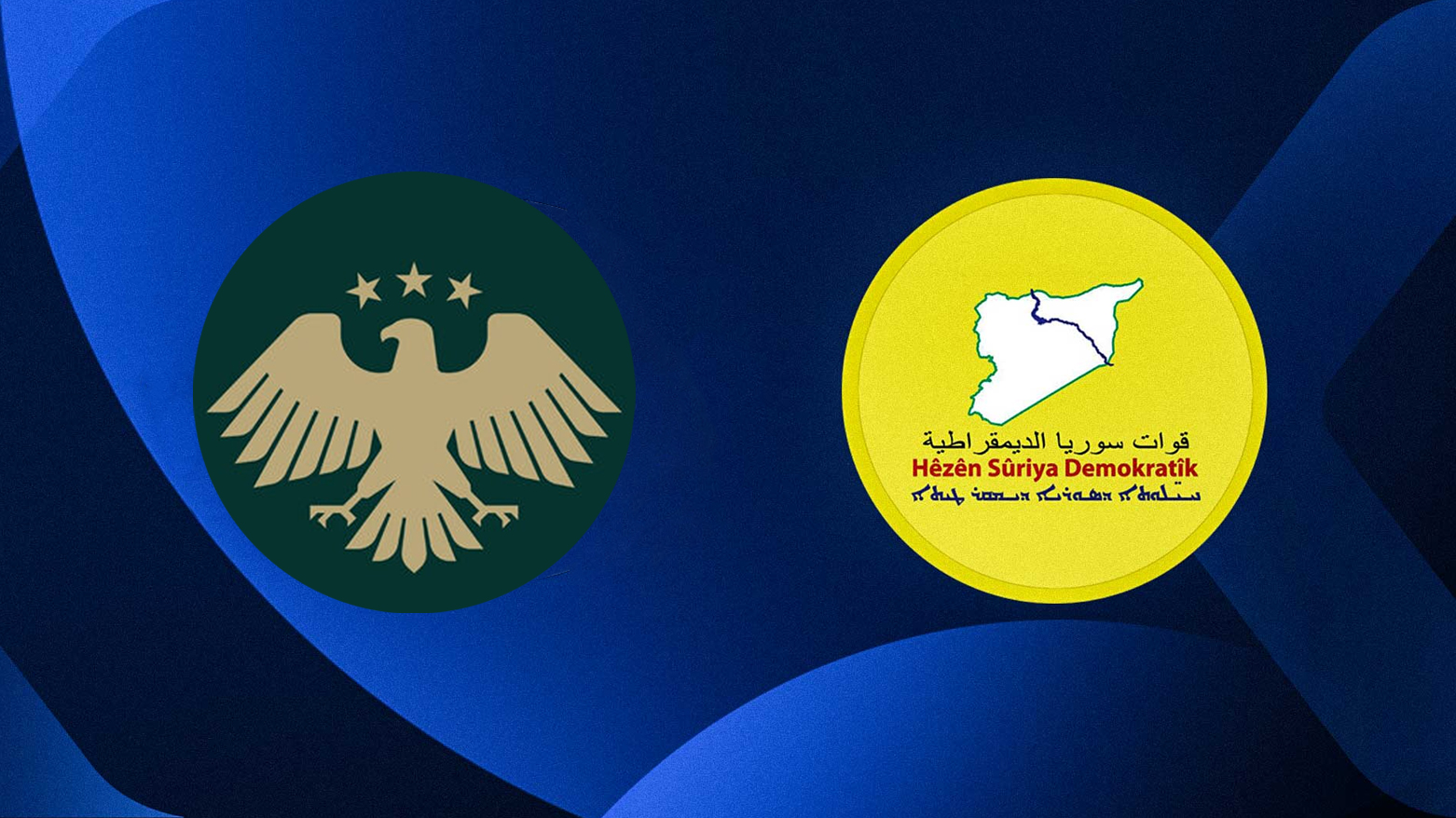SDF and Damascus Delegation Hold Talks in Northeast Syria
The SDF and a Damascus delegation held talks in Tabqa to de-escalate tensions in Aleppo's Kurdish neighborhoods and address humanitarian blockades. The SDF handed over detained soldiers as a goodwill gesture while continuing anti-ISIS operations in Deir ez-Zor.

ERBIL (Kurdistan24) – A military committee representing the Syrian Democratic Forces (SDF) on Monday met with a delegation from the Damascus government in the city of Tabqa, where both sides discussed ongoing tensions in Aleppo’s Sheikh Maqsoud and Ashrafiyeh neighborhoods and explored peaceful means to de-escalate the situation.
According to the SDF Media Center, the meeting took place on Monday, with the SDF’s military committee receiving the visiting delegation from Damascus to discuss the most recent clashes and blockades affecting the predominantly Kurdish districts of Aleppo. Both sides reportedly agreed to pursue “peaceful and secure mechanisms” to restore stability and ensure the safety of civilians in the affected areas.
As a gesture of goodwill, the SDF handed over a number of Syrian government soldiers who had been previously detained in various operations, signaling its readiness to reinforce mutual confidence and de-escalate military tensions.
In its statement, the SDF reaffirmed its commitment to peaceful solutions, emphasizing that its forces remain steadfast in protecting civilian safety and preventing any further escalation that could threaten the fragile calm across the region.
Despite the recent agreement signed between the SDF and the Syrian government on Oct. 7, hostilities have persisted around Aleppo’s Kurdish neighborhoods. Local administrations in Sheikh Maqsoud and Ashrafiyeh have warned that the continued blockade of essential supplies such as food, water, and fuel has created what they describe as “the risk of a humanitarian disaster.”
Meanwhile, the SDF reported new attacks in Deir ez-Zor and Hasakah provinces. In the western countryside of Deir ez-Zor, two SDF fighters were killed and three others injured when a landmine, planted by remnants of the Islamic State (ISIS), exploded near the village of Hasan, west of the Kesra area. The SDF condemned the attack as a “cowardly and criminal act” aimed at destabilizing civilian peace and hindering the region’s recovery.
Following the explosion, SDF units launched a wide-scale clearing operation targeting ISIS sleeper cells believed to be responsible for the attack. “We will continue our operations against ISIS until all their material and moral networks are dismantled,” the statement said.
These developments come just days after SDF General Command member Sipan Hamo reiterated the group’s readiness to join a future Syrian national army—on the condition that its identity, recognition, and legacy of struggle are preserved.
In a statement issued on Oct. 18, Hamo clarified that the SDF’s participation in any new national military structure must be based on mutual respect, democratic principles, and the protection of the rights of all Syrian communities, including Kurds, Arabs, Christians, Druze, and Alawites. “We want to be part of the new national army, and we consider this a strategic objective,” he said. “However, integration must preserve the SDF’s identity and acknowledge its sacrifices.”
Hamo, who heads the SDF’s military negotiation committee with Damascus, identified Afrin as the “real test” of the Syrian government’s sincerity toward reconciliation, stating that the return of displaced residents, compensation for their losses, and justice for the perpetrators of crimes are prerequisites for building trust.
“The SDF is a national force capable of bringing all components together,” he emphasized, reaffirming that the group’s efforts aim to safeguard Syria’s unity and diversity. He warned, however, that as long as the government fails to take credible steps toward genuine reform, the SDF will remain a defensive force “protecting our existence, our lives, and our identity.”
The ongoing discussions between the SDF and the Damascus government thus reflect a delicate balance—one between de-escalation on the ground and the broader question of Syria’s political and military future. As Sipan Hamo underscored, genuine unity can only be achieved through justice, inclusivity, and mutual respect—principles that remain at the heart of the SDF’s vision for a democratic Syria.